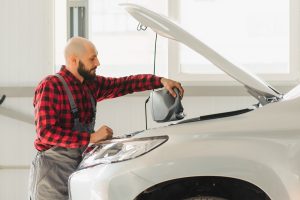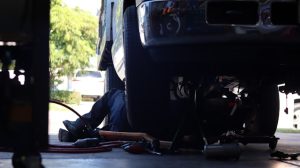Best Way to Maintain Your Car’s Value: Key Factors Unveiled
Did you know that a car loses around 20% of its value in the first year? To protect your investment and minimize depreciation, it’s crucial to understand the best ways to maintain your car’s value over time. By following simple maintenance routines and making smart decisions, you can ensure that your vehicle retains its worth for years to come. In this post, we will explore practical tips and strategies to help you preserve the value of your car, saving you money in the long run and maximizing resale potential.
Key Takeaways

Regular maintenance and care play a crucial role in preserving your car’s value over time.
Implementing detailed maintenance practices, such as keeping service records and addressing issues promptly, can significantly impact the resale value of your vehicle.
To maximize the resale value of your car, consider practical tips like investing in quality parts, keeping the exterior and interior clean, and staying up-to-date with routine inspections.
Avoid value depreciation by avoiding neglecting maintenance tasks, opting for preventive measures, and addressing any warning signs promptly.
The vehicle’s history, including service records, accident reports, and ownership details, can greatly influence its perceived value in the resale market.
When choosing a vehicle, prioritize models known for retaining value well and consider factors like reliability, popularity, and overall condition.
Understanding Car Value
Factors Affecting Resale
When selling your car, research its market value based on make, model, and condition to set a competitive price. Urban areas often fetch higher resale values due to demand from people. Accident history can significantly reduce your car’s resale value.
Research market value based on make, model, and condition.
Consider urban areas for higher resale values.
Accident history can lower the resale value.
Choose High-Value Models
Opt for popular models that have a reputation for retaining their value over time. Select cars with high safety ratings and low depreciation rates. Luxury or limited-edition models are known for holding their value well.
Popular models retain value better.
High safety ratings increase resale value.
Luxury editions hold their value effectively.
Importance of Fuel Efficiency
Select fuel-efficient cars to attract buyers concerned about the environment. Emphasize your car’s fuel efficiency in listings to appeal to cost-conscious buyers. Regular maintenance ensures optimal fuel efficiency.
Fuel-efficient cars attract environmentally conscious buyers.
Highlight fuel efficiency in listings for cost-conscious buyers.
Regular maintenance maintains optimal fuel efficiency.
Maintaining Your Car’s Value
Regular Maintenance
Regular tune-ups and inspections play a crucial role in preserving your car’s value over time. By adhering to a consistent maintenance schedule, you can ensure that your vehicle operates efficiently and remains in optimal condition. Addressing any maintenance issues promptly is key to preventing minor problems from turning into costly repairs down the line.
Drive With Care
Practicing smooth acceleration and gentle braking techniques can significantly extend the lifespan of your car’s mechanical components. By avoiding sudden stops and starts, you reduce the strain on vital parts, ultimately prolonging their longevity. Driving at moderate speeds not only enhances fuel efficiency but also minimizes wear and tear on the engine and transmission.
Avoid Modifications
While personalizing your car can be tempting, extensive aftermarket modifications can potentially decrease its resale value. Opt for cosmetic enhancements that are easily reversible and appeal to a broader range of buyers. It’s essential to understand that while personalized modifications may reflect your taste, they might not align with the preferences of prospective purchasers.
Keep It Clean
Maintaining a clean exterior and interior is essential for upholding your car’s value. Regular washing and waxing help protect the paintwork from environmental damage and maintain its visual appeal. Keeping the interior tidy by vacuuming and cleaning regularly creates a positive impression on potential buyers. Promptly addressing any stains or odors ensures that your car remains in top condition.
Tips for Maximizing Resale Value

Record Keeping
Maintain all maintenance records and receipts in a designated folder for easy access. Create a digital or physical log tracking service history and repairs. Presenting a detailed maintenance log showcases the care given to your car.
Regular Tune-Ups
Prioritize oil changes and filter replacements to extend your car’s lifespan. Check fluid levels regularly for optimal engine performance. Schedule tune-ups with certified mechanics to address any potential issues promptly.
Pet and Smoke Free
Enforce rules to secure pets during car rides, preventing damage and distractions. Uphold a no-smoking policy to preserve interior quality. Invest in protective covers and air fresheners for a clean environment.
Manage Mileage
Plan efficient routes to minimize unnecessary mileage on your vehicle. Consider carpooling or public transportation to reduce daily mileage. Monitor driving habits to control mileage accumulation and maintain your car’s value.
Detailed Maintenance Practices
Routine Checks
Regular visual inspections help identify visible damage early, preventing costly repairs in the future. Check tire pressure and tread depth to ensure safe driving conditions. Inspect lights, signals, and brakes regularly to maintain optimal functionality.
Conduct visual inspections for early damage detection
Check tire pressure and tread depth periodically
Inspect lights, signals, and brakes for functionality
Cleaning Tips
Utilize specialized cleaners for different surfaces like glass, leather, and upholstery to maintain their quality. Invest in detailing tools such as microfiber cloths and brushes for thorough cleaning. Follow a consistent cleaning schedule to preserve your car’s interior and exterior appearance.
Use specialized cleaners for different surfaces
Invest in detailing tools like microfiber cloths
Follow a regular cleaning schedule
Safe Driving Habits
Adopt defensive driving techniques to minimize accidents and protect your vehicle’s condition. Adhere strictly to speed limits and traffic regulations to ensure safety for you and your car. Avoid aggressive driving behaviors that can accelerate wear and decrease the resale value of your car.
Practice defensive driving techniques
Follow speed limits and traffic rules diligently
Avoid aggressive driving behaviors
Avoiding Value Depreciation
Unnecessary Add-Ons
Evaluate the practicality and appeal of any add-ons before installation. Over-customizing with unnecessary features can deter buyers. Focus on functional upgrades that enhance performance or convenience without compromising resale value.
Pros:
Enhances car functionality.
Potential to increase resale value.
Cons:
Risk of overspending on non-essential features.
May limit the pool of interested buyers.
Interior Maintenance
Use protective mats and seat covers to shield the interior from spills and stains. Regularly clean and condition leather or fabric upholstery to prevent wear and tear. Address any interior damage promptly to maintain the overall aesthetic appeal of your car.
Use protective mats and seat covers.
Clean and condition upholstery regularly.
Promptly address any interior damage.
Exterior Care
Apply a coat of wax regularly to protect the paint and maintain a glossy finish. Inspect for scratches and chips, touch up paint to prevent rust. Park in shaded areas or use car covers to shield the exterior from sun damage and harsh weather conditions.
Regular wax application protects paint.
Touch up paint prevents rust formation.
Parking in shaded areas minimizes sun damage.
Importance of Vehicle History
Maintenance Records
Maintaining detailed maintenance records is crucial for preserving your car’s value over time. Keep a comprehensive log documenting all maintenance and repair activities, including service dates, mileage, and work descriptions. These records serve as tangible evidence of your diligent upkeep when you decide to sell the vehicle.
Document every maintenance task
Include service dates and mileage
Present organized records to buyers
Accident History
Being transparent about your car’s accident history is key to maintaining its value. Disclose any past accidents or repairs to potential buyers upfront. To ensure credibility, consider getting professional inspections to verify the quality of any repairs or restoration work conducted on the vehicle.
Disclose accidents transparently
Verify repair quality with inspections
Build trust through full disclosure
Choosing the Right Vehicle
Resale Value Factors
When assessing your minivan’s resale value, key factors such as age, mileage, and overall condition play a crucial role. Conduct thorough research on similar models to gauge competitive selling prices. Stay flexible to negotiate based on current market trends and demand dynamics.
Research comparable models
Evaluate age, mileage, and condition
Adjust asking price based on market data
Fuel Efficiency
To maintain your minivan’s value, monitor fuel consumption closely and adapt driving habits for better efficiency. Consider opting for hybrid or electric models for long-term cost-effectiveness and environmental advantages. Regular maintenance is essential to enhance fuel efficiency and minimize emissions.
Monitor fuel consumption regularly
Opt for hybrid or electric models
Schedule routine maintenance checks
Practical Tips for Owners
Mileage Management
Track mileage regularly to monitor usage patterns and identify opportunities for reduction.
Plan efficient routes and consolidate errands to minimize unnecessary driving.
Consider alternative transportation options to limit mileage accumulation and preserve your car’s value.
Maintaining optimal mileage on your vehicle is crucial for preserving its value over time. By tracking your mileage regularly, you can gain insights into your driving habits and find ways to reduce unnecessary trips. Planning efficient routes not only saves time but also helps lower mileage accumulation, benefiting the long-term value of your car. Exploring alternative transportation methods such as public transit or carpooling can further reduce wear and tear on your vehicle, ultimately enhancing its resale potential.
Long-Term Ownership
Implement a proactive maintenance schedule to extend the longevity of your car.
Stay informed about industry trends and advancements to make informed decisions about upgrades.
Develop a long-term ownership plan that includes regular maintenance, inspections, and potential resale strategies.
Long-term ownership of a vehicle requires dedication to maintenance and upkeep. By implementing a proactive maintenance schedule, you can address issues promptly, preventing costly repairs down the line. Staying updated on industry trends allows you to make informed decisions about upgrades or modifications that can enhance your car’s value. Developing a comprehensive long-term ownership plan that encompasses regular maintenance, scheduled inspections, and potential resale strategies ensures that you maximize the value of your vehicle throughout its lifespan.
Final Remarks
In conclusion, maintaining your car’s value is crucial for maximizing returns when you decide to sell or trade it in. By following the tips outlined and staying on top of detailed maintenance practices, you can significantly reduce depreciation and ensure a higher resale value for your vehicle. Remember, a well-maintained car with a clean history will always be more appealing to potential buyers.
Take charge of preserving your car’s value by implementing the suggestions provided. Regular upkeep, addressing issues promptly, and keeping thorough records will set you up for success in retaining your vehicle’s worth over time. Your efforts now will pay off in the future when it’s time to part ways with your beloved automobile.
Frequently Asked Questions
What factors affect a car’s resale value?
Several factors influence a car’s resale value, including the vehicle’s age, mileage, condition, maintenance history, market demand, and optional features. Keeping these aspects in check can help maintain or even increase your car’s value over time.
How can regular maintenance help preserve a car’s value?
Regular maintenance such as oil changes, tire rotations, brake inspections, and scheduled servicing not only keeps your car running smoothly but also demonstrates to potential buyers that the vehicle has been well cared for. This proactive approach can positively impact its resale value.
Is it essential to keep records of my car’s maintenance history?
Maintaining detailed records of your car’s maintenance history is crucial for proving that the vehicle has been well-maintained over time. These records can instill confidence in potential buyers and help justify a higher resale value for your vehicle.
What are some practical tips for owners to maintain their car’s value and prevent depreciation?
Owners can maximize their car’s value by keeping it clean inside and out, addressing issues promptly, following the manufacturer’s recommended maintenance schedule, avoiding modifications that may decrease value, and considering professional detailing before selling.
How does choosing the right vehicle, such as a minivan or truck, initially impact its long-term value and depreciation?
Selecting a vehicle known for reliability, popularity in the market, good safety ratings, and strong resale values can significantly impact its long-term value. Researching and selecting a model with these qualities can help preserve your investment over time.
